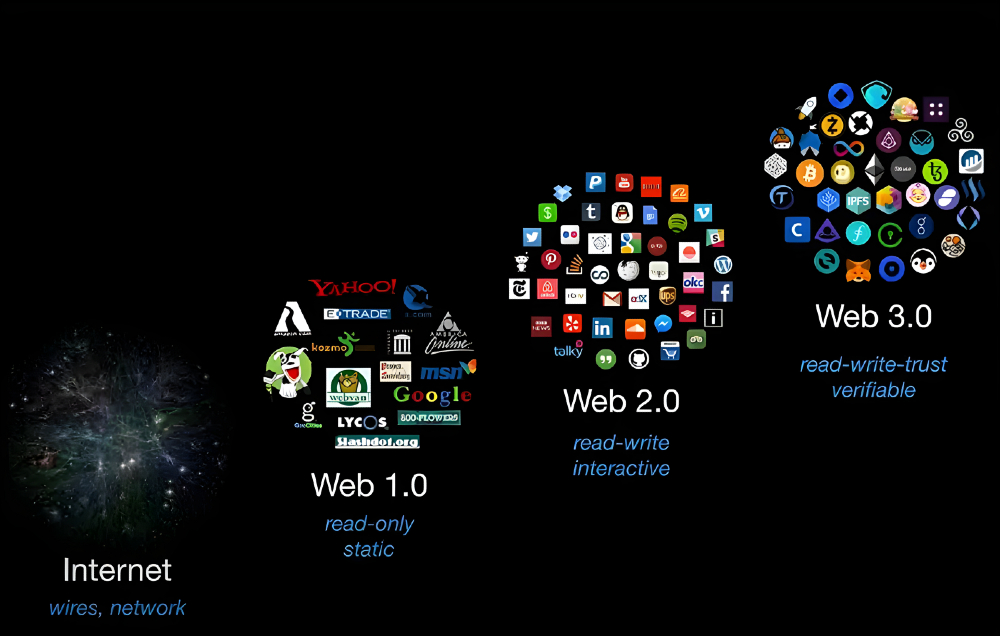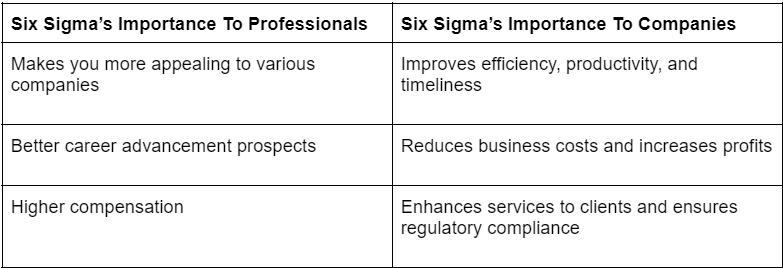
Besides the vibrant nightlife, advanced infrastructure and unique cultural blend, Hong Kong is also seen as a gateway to world markets, thus making Hong Kong the choice destination for many expats and multinational companies within the tech, finance, and advertising industry. The arrival and establishment of such companies created ample job opportunities for expats --- thus, attracting expats to move to Hong Kong.
In this article, we will take a look at everything you need to know about moving to Hong Kong as an expat. This article will go over all the practical and essential details such as visas and work permits, the requirements to apply for visas and work permits, accommodations, healthcare, transportation, education and lifestyle.
When we move and live somewhere new, there are bound to be challenges such as understanding the rules and regulations of the country or place, and getting used to the lifestyle and culture --- and Hong Kong is no exception.
If you are curious about how many people are currently living in Hong Kong, according to the official statistics by Hong Kong’s Census and Statistics Department, there are 7.3 million people as of 2022’s year-end.
Living expenses in Hong Kong will depend on your marital status and a few other circumstances. If you are single, the cost of living will be low, but if you are already married and bringing along your spouse and children, the cost of living will be higher.
Besides that, you will also need to consider your choice of transportation mode. Will you be driving or taking public transportation? If it's the former, then your total cost of living in Hong Kong will be expensive because as reported by South China Morning Post, the fuel price in Hong Kong is soaring currently. However, if you choose the latter, it will depend on the public transportation you will take and how you pay for them, which we will cover more in the transportation section of this article.
Another reason to use public transportation as your main mode of travelling around Hong Kong is to save on car park fees. Car park fees in Hong Kong can be expensive, especially if your car overstayed its park time. So to save up, it is better to use public transportation as your main mode of travelling around Hong Kong, they are fast, efficient and wallet-friendly.
Finally, you will need to take into account other expenses such as groceries, whether you cook or takeaways, healthcare and how often you shop for personal items such as clothing, etc. Each will add up to your cost of living in Hong Kong, and the total amount depends on whether you are single or married. However, we included the summary and rough estimate for the cost of living in Hong Kong, courtesy of Numbeo:
Thankfully, some government-linked organisations with the likes of Hong Kong Science and Technology Parks Corporation offer subsidised co-living spaces that can help affluent professionals to reduce their rental costs.
Being one of Asia’s leading tech and financial hubs, Hong Kong offers ample job opportunities to expats, especially in the tech, medical and finance sectors. To further attract and support talent in the mentioned sectors, Hong Kong’s government set up a public corporation called HKSTP in 2001 to encourage innovation and to support talent in the tech, medical and finance sectors. Since its establishment, HKSTP has launched several initiatives such as Hong Kong Science Park and Innocell, as a show of support to talent efforts in advancing and innovating Hong Kong’s technology.
But before you can even move and work in Hong Kong, you will need to apply for visas that match your present circumstances.
So, if you are moving to Hong Kong for work, you will need to apply for a work visa under the General Employment Policy (GEP) and submit the application form personally or by mail.
However, a visa under GEP is only issued for a certain period of time and you will need to have an already confirmed job offer to apply for it as you need someone to sponsor you.
However, if you are a professional about to establish or join a business in Hong Kong, you may apply for GEP - Entrepreneur visa. The application is the same as GEP - Professional visa but with a slightly different key requirement.
TTPS is a visa to attract professionals with experience and good academic qualifications from all over the world to explore career opportunities and developments in Hong Kong. Unlike other work visas, TTPS visa applicants are not required to have a confirmed job offer in Hong Kong at the time of application.
TTPS holders may be granted a 24 months stay on time limitation only without needing to meet other conditions of stay in Hong Kong as outlined by Hong Kong’s Immigration Department.
TechTAS is a fast-track arrangement for eligible companies to bring in non-local tech talent to undertake research and development in Hong Kong. However, all eligible companies must first apply for a quota, they will then be provided with a quota by the Innovation and Technology Commission (ITC). The provided quota can sponsor eligible non-local tech talent to apply for an employment visa within 24 months of the quota validity period.
For more detailed information on the application process, eligibility criteria and required documents, you may visit the official page via this link.
If you are married and plan to bring along your spouse, you can apply for the Dependent visa option. The Dependent visa can only be applied by immediate family members (spouse/unmarried children under 18) of a foreign national that has a valid Hong Kong visa for employment, investment, training or study in Hong Kong or a permanent resident in Hong Kong.
If more than one immediate family is applying for the Dependent visa, then each family member fills out a separate application and all applications must be sponsored by the principal visa holder.
There is also an extra visa category option for expats moving to Hong Kong as an investor that will be joining a company and wants to establish their own business. This visa category's main requirement is proof that the business you will be investing in or establishing in Hong Kong will be able to make a substantial contribution to Hong Kong’s economy.
Just like the work visa, you will need a sponsor to validate and help set up your business in Hong Kong. Your sponsor must meet the following requirements:
If all of the above requirements are met, you visit the official page to download forms ID999A (for yourself) and ID999B (for your sponsor).
Besides meeting the eligibility criteria, you will need to have and submit the following documents:
Once you have entered Hong Kong on a valid visa, and then decided to stay longer than 180 days, you must apply for a non-resident Hong Kong identity card. There are no specific requirements to be fulfilled or fees to pay, you just need to register within 30 days of your arrival in Hong Kong. The card will be issued to you for free.
The card will function as a storage for personal information and as a fast-lane immigration clearance at Hong Kong’s borders and it also can serve as a library card for Hong Kong’s public libraries.
There is also a Permanent Resident Hong Kong ID should you decide to stay in Hong Kong indefinitely. Permanent Hong Kong ID will grant its holder the right to settle in, thus granting its holder resident benefits such as to vote in an election and remain in the country.
Though the requirement to apply for Hong Kong Permanent Resident ID is quite simple, it will take quite a bit of time to be fulfilled. The requirement is that you must have lived in Hong Kong territories continuously for seven years. There are also other two requirements, both requirements can be met easily and quickly;
For more detailed information on both types of permanent residence permits, you may visit Hong Kong’s Immigration Department's official web page.
For complete and detailed requirements and steps on how to apply for visas and passes mentioned in this section, you may visit the official website by clicking on this link.
If you’re planning to settle in Hong Kong for a long time, then you will want to know about the current real estate price in Hong Kong. So that you can make the best decision that suits your financial situation. Below we have shared brief information and news on Hong Kong’s current real estate market situation.
A report made by Mansion Global said that Hong Kong’s real estate price is expected to perk up this year, thus ranking Hong Kong’s real estate price as one of the most expensive in the world. So you will need to budget and consider carefully the type of accommodation that you want to rent in Hong Kong, especially if you move to Hong Kong along with your family.
You can check out the average price comparison percentage in this article Cost of Living in Hong Kong section. We also have included a link to Numbeo’s comparison index page here to help you get a more detailed insight.
In Hong Kong, most real estate landlords use a standard government lease. But, the landlords are allowed to add their clauses. So you must read the contract thoroughly, to avoid any hidden charges or conditions that can set you back financially or legally.
The rental period in Hong Kong is generally two years, with a clause break after one year.
Two or three months' worth of rent will be required for the security deposit. The deposit will be returned once tenants have successfully and properly vacated the property.
Utility bills are rarely included in the monthly rental fee, so you will have to calculate and budget this on your own. The total costs vary depending on the amount of usage and the service provider you will subscribe to.
If you have the means and are interested in purchasing a real estate property in Hong Kong, you will need to have permanent resident status, which as mentioned in the above section, will take seven continuous years before you can apply and receive permanent resident status in Hong Kong. Without permanent resident status, it will be difficult for you to purchase a real estate property in Hong Kong. Additionally, most Hong Kong banks are reluctant to offer housing loans to those without a long-term good financial record track in Hong Kong.
Also, as we had mentioned above, Hong Kong’s real estate price is expected to perk back up this year after its 15.6% decline from last year. The evidence for this claim is that in January this year, the existing home index rose 2 points (0.6%) from last December to 336.1, indicating the largest increase since April 2022. This growth is expected to continue to pick up for the rest of this year, with some predicting a “v-shaped” recovery as a result of a steady influx of buyers and investors rekindling the transactions.
However, as we have mentioned, you have the option to rent a real-estate property which will be cheaper and has far more lax requirements and procedures. This is especially true if you are moving to Hong Kong along with family members, it’ll be much cheaper to rent a house and since the procedure to rent a house is simpler, you can get it done quickly and have a place ready for you and your family by the time you arrive in Hong Kong.
Of course, when you have just moved or are about to move to somewhere new, you will be completely unfamiliar with how things work or the best housing area or apartment complex; despite having researched the latter subject in advance.
So, opting for a real estate agency is the most efficient method to secure accommodation in Hong Kong, ensuring significant time savings and the ability to find a place that perfectly matches your needs. It is important to note that agent fees are applicable. Fortunately, finding a real estate agent online is a hassle-free process, and many agency offices are conveniently situated near popular residential complexes.
To further help smoothen your accommodation hunt in Hong Kong, we have listed several top online property search sites in Hong Kong for you to check out:
However, if you are an IT Professional expat planning to move to Hong Kong, you can leverage the housing initiative recently launched by HKSTP.
This housing initiative by HKSTP is called Innocell, a seventeen-storey co-living and co-working space that allows its residents to commune, collaborate and connect with the community. At Innocell, instead of the traditional clock-in and clock-out, successful applicants will be granted the right to accommodation on-site; work and live in the same area. At Innocell, residents will have access to various facilities such as a dedicated gym, gaming consoles, kitchens, outdoor areas, band rooms and seating, spread between the seven-storey building.
So, if you are an expat moving to Hong Kong as an IT professional, you can apply for admission to Innocell on HKSTP official page.
There are two choices available within Hong Kong's healthcare system: public healthcare and private medical care. If you decide to go for public healthcare, there is no need for Hong Kong’s private healthcare insurance, because Hong Kong’s government provides free or low-cost public healthcare services that are accessible to the public. However, if you opt for the private healthcare system, then it is crucial to have adequate private medical insurance, as expenses can become significantly expensive.
In Hong Kong, public health insurance operates differently. Individuals are not required to make any financial contributions to access it. The government extends healthcare coverage to all individuals, regardless of their status, with minimal to no charges. This inclusive system encompasses not only Hong Kong citizens and permanent residents but also extends to non-permanent residents. As a result, once you arrive in Hong Kong with a valid visa and obtain your Hong Kong ID card, you automatically qualify for public healthcare benefits.
Hong Kong’s public healthcare is administered jointly by the Hong Kong Department of Health and the Hospital Authority. To increase healthcare efficiency, all of Hong Kong’s clinics, doctors, and medical staff are organised into regional clusters. Hence, each district will be able to provide a medical specialise to care for its residents.
However, there is one thing that Hong Kong’s public healthcare doesn’t cover, which is dental care. Only in case of emergency, you will be entitled to use and access Hong Kong’s public dentist and dental care services.
The charges for using and accessing public healthcare services in Hong Kong are very affordable. For example, a visit to a public outpatient clinic will only cost nominal fees, approximately HK$50 for a general practitioner's consultation, HK$100 for a specialist appointment, and it will cost only around HK$60 for subsequent follow-ups. As for medicines, a minimal fee of HK$10 is applicable for any prescribed medications.
Hospitalisation in a regular ward at a public hospital will cost around HK$100 per day, with an admission fee of HK$50.
Private health insurance in Hong Kong follows a similar structure to global standards, providing healthcare coverage for individuals without access to public healthcare and those seeking more extensive medical services.
The current practice among expats working in Hong Kong is to leverage benefits from employer-provided medical insurance plans, covering both the employees and their families. The Hong Kong government typically grants visas to expats on the condition that their employers furnish them with healthcare coverage. This prerequisite serves the purpose of preventing individuals from becoming too reliant on the public healthcare system and avoiding additional burdens on public healthcare.
The pricing for health insurance in Hong Kong is typically influenced by several factors, such as your age, medical conditions, the provider, and a few other factors. For example, for an individual around 30 years old, the average cost for a health insurance plan can range between HK$2,000 and HK$25,000, and this also will depend on the specific details of your personal insurance coverage.
The Food and Health Bureau of Hong Kong has established the Voluntary Health Insurance Scheme (VHIS) initiative as a means to provide a better understanding of the local healthcare insurance market. Companies can choose to submit their insurance policies for certification according to specified standards. All eligible and approved policies will be showcased on the VHIS website, providing customers with the opportunity to compare and evaluate their options, ultimately enabling them to select the most suitable one.
The health insurance plans must include the following coverage:
In addition, the scheme also offers guaranteed insurance renewal until the age of one hundred years old, without lifetime benefit limits, and a cooling off period of twenty days, during which customers can cancel their policy and expect a full refund of their premiums. The transparency and accessibility of scheme information are ensured.
We also mentioned earlier in this article that fuel prices in Hong Kong are currently soaring, so it is more affordable to rely on Hong Kong's advanced public transportation system. There are five different modes of public transportation in Hong Kong’s public transportation system:
People choose taxis for their convenience, efficiency, and accessibility. Taxis provide door-to-door service, navigate the city's road network swiftly, and are available throughout the city, making them a popular choice for both locals and tourists. Taxis are particularly useful for reaching less serviced areas and offer a comfortable and private transportation experience. While taxi fares in Hong Kong are considered affordable compared to other major cities, they are more expensive than public transportation options like buses or the MTR. However, the cost is generally reasonable for shorter distances or group travel.
People choose buses and minibusses as a common mode of transportation due to their extensive coverage, affordability, and convenience. Buses provide a comprehensive network that reaches various neighborhoods, including areas that may not be easily accessible by other means. They offer a cost-effective option (ranging from HK$4.50 to HK$47 depending on your destination) for daily commuting and traveling longer distances.
Mini buses, on the other hand, are smaller vehicles that operate on fixed routes and provide a more flexible and faster alternative. They are particularly useful for reaching specific destinations within neighborhoods. The cost of buses and minibusses in Hong Kong is relatively low, with fares varying based on the distance traveled. The exact fare can be paid in cash or with the Octopus card, a rechargeable smart card widely used for public transportation in Hong Kong.
People in Hong Kong take the Tramway, also known as the "Ding Ding," for its unique charm, historical significance, and affordability. The Tramway runs along the northern coast of Hong Kong Island, offering a leisurely and nostalgic way to traverse the city. Passengers can enjoy the iconic double-decker trams, which provide an excellent vantage point for sightseeing, taking in the bustling streets, vibrant neighborhoods, and local life. The Tramway has a flat fare structure (HK$1.3 to HK$3), making it a cost-effective option for both locals and tourists. The Tramway's affordability, distinctive experience, and scenic route make it a popular choice for those looking to explore the city in a unique and budget-friendly manner.
For a more detailed look at the Tramway route, you may visit the official page and view the interactive route map to help you get the bearing on the tram route map.
The Star Ferry, operating since 1898, is an iconic and affordable mode of transportation between Hong Kong Island and the Kowloon Peninsula. It is also one of the best ways to enjoy the beautiful view of Victoria Harbour and the dazzling Hong Kong skyline. The ferry has two decks, the upper deck providing the best views and fresh air while the lower deck is a more economical option. The operation hour is from 6.30AM to 11.30AM
The Mass Transit Railway (MTR) is the preferred and highly convenient mode of public transportation in Hong Kong. It efficiently connects various regions, including Hong Kong Island, Kowloon, the New Territories, and Lantau Island. With an extensive network of ten lines, the MTR system boasts over 70 stations and operates from 6AM to 1AM.
To access and pay for all the listed modes of public transportation, you will need to be a holder of the Octopus Card. The Octopus Card is a prepaid electron card dedicated to functioning as a payment for public transportation systems in Hong Kong. Fares for all public transportation modes can be paid for using the Octopus Card.
In Hong Kong, education is funded by the government, and students attending public schools can receive free education from primary to senior secondary school, covering 12 years from ages 6 through 18. Public schools make up the majority of educational institutions in Hong Kong, with some being operated by charitable or religious organisations. Hence, you will be able to find a lot of Catholic or Protestant schools in Hong Kong.
In recent years, significant transformations have taken place within the Hong Kong school system. Before this, Hong Kong’s education system was known for its fierce competition, however, reforms were implemented to reduce the pressure on students. As a result, the compulsory primary and junior secondary school exams have been removed from the curriculum. Despite these changes, the culture of high expectations and demanding standards remains, causing a lot of students to experience mental stress and burden.
Alongside the local public schools, there’s also the well-regarded private school system in Hong Kong that includes numerous international schools. Parents of expats’ children often choose international schools due to their more Westernised educational approach. However, nowadays these schools are now steadily gaining popularity among local Chinese students and parents too.
Below we have listed several top international schools in Hong Kong for you to check out:
International schools typically start their academic year in August. To ensure your child secures a place at the international school of your choice, it is advisable to begin the application process one year in advance.Each international school has its specific admission requirements, so it is important to directly contact the school of your choice.
The advantage of enrolling your child in an international school is the smaller class sizes compared to local public schools, as a result, the environment is less competitive. However, international school fees can be quite costly. International school tuition fees can range from HK$100,000 to HK$200,000 or more per year, depending on the specific school and grade level.
Hong Kong has always been famous for its unique cultural blend where the East meets the West, which brings about a sense of familiarity to those just moving to Hong Kong from the West. As a result, expats can expect to see a unique blend of local Chinese customs and sprinkles of Western cultures as well. To be specific, it is a sophisticated mix of Confucian and British ethics and cultures.
Of course, besides the unique cultural blend, Hong Kong is also known for its vibrant nightlife, making it a hotbed for adults to meet, socialise and seek entertainment after a long day at work or during the weekends. Check out some of the notable nightlife hotspots in Hong Kong from Klook’s latest list
If you are looking for more family-friendly entertainment and attraction, Hong Kong has plenty of it as well.
The communication languages commonly used in Hong Kong are English and Cantonese. About 54% of people in Hong Kong speak English, 95% of them speak Cantonese, and 49% of the locals can speak Mandarin.
Also, to ensure you will not offend the locals while interacting with them; the social norms in Hong Kong are that you may stand close to each other while talking but must refrain from making physical contact --- unless you are in a close relationship and familiar with the locals you are interacting with. In addition, social interactions such as small talk and greetings are not a common practice. So, don’t be taken aback you experience such situations.
Another crucial piece of information to know is that the locals would call themselves Hong Kongers. So be sure to address other locals as such when interacting with local Hong Kongers. Hong Kongers are often described as culturally sophisticated, intelligent, fun-loving, hard-working, broody, and adept at operating in both the Western and Eastern worlds. On top of that, most Hong Kongers have a more traditional mindset and mindset compared to Westerners.
Hong Kong offers a unique blend of vibrant nightlife, advanced infrastructure, and diverse culture, making it an attractive destination for expats and multinational companies. The city serves as a gateway to world markets, providing ample job opportunities in industries such as tech, finance, and advertising. However, moving to Hong Kong as an expat comes with its challenges, including understanding the rules and regulations, adapting to the lifestyle and culture, and considering the cost of living.
In short, moving to Hong Kong as an expat offers numerous opportunities but comes with considerations such as visa applications, cost of living, accommodation, and healthcare choices. With proper planning and understanding of the requirements, expats can enjoy the vibrant city and its cultural diversity.
If you are interested in exploring the offerings of the Hong Kong tech hub firsthand, you should check out GRIT and HKSTP career networking events organised specifically for tech talent like yourself.
This event serves as a platform to not only explore deeper into Hong Kong's thriving tech scene but also connect with professionals who share your interests and industry leaders from well-known companies such as Lalamove, Fano Labs, Aerosim, and more. This is the opportunity to expand your professional network, gain valuable insights from experts, and potentially elevate your tech career to new heights.
Don't hesitate to register now and become an integral part of the dynamic tech hub in Asia.
To learn more about the event or register based on your current location, please refer to the details below:

Hong Kong has positioned itself as a thriving hub for technology and innovation, presenting abundant opportunities for companies and entrepreneurs seeking to make their mark in the tech industry. With a strategic location, robust infrastructure, and a supportive ecosystem, the city offers a unique blend of advantages that foster technological advancements, attract investment, and nurture talent.
One such example would be the growing fintech industry in Hong Kong where it is home to a whopping 800 fintech companies, up from 180 companies five years ago. It shows how fintech innovation is fueled by a collaborative effort between the government, industry players, and financial institutions. The government's proactive approach in revitalizing the fintech landscape has resulted in the implementation of forward-thinking initiatives and regulatory reforms. The Hong Kong Monetary Authority (HKMA) has spearheaded programs such as the Fintech Supervisory Sandbox and the Faster Payment System, providing a conducive environment for fintech experimentation while ensuring consumer protection. These initiatives have not only attracted established fintech players but have also paved the way for startups to flourish and disrupt the financial services sector.
In parallel, Hong Kong has also emerged as an attractive destination for tech companies beyond the fintech sphere. The city's robust tech ecosystem, epitomized by institutions like Hong Kong Science Park and Cyberport, plays a pivotal role in nurturing innovation and driving technological advancements across various sectors. Hong Kong Science Park, located in the New Territories, provides cutting-edge facilities, resources, and sector-specific programs to support tech companies and startups in areas such as biotechnology, electronics, green technology, information technology, and material and precision engineering.. Meanwhile, Cyberport, situated in the southern part of Hong Kong Island, focuses on digital tech innovation, including fintech, e-commerce, digital entertainment, and cybersecurity, creating an environment conducive to entrepreneurial success.
This dynamic tech ecosystem is further bolstered by the Hong Kong government's commitment to fostering innovation and attracting investment. The government's initiatives, such as the Innovation and Technology Fund (ITF) and the Innovation and Technology Venture Fund (ITVF), actively promote private sector investment in tech startups, providing crucial financial support and venture capital. Moreover, the government has implemented programs to attract and retain tech talent, including the Top Talent Pass Scheme (TTPS) and Technology Talent Admission Scheme (TechTAS), which streamlines visa applications for overseas tech professionals. The convergence of Hong Kong's robust tech ecosystem has created unparalleled opportunities for companies and talent seeking to advance on the city's tech prowess.
Amidst Hong Kong's flourishing tech ecosystem, a myriad of exciting opportunities awaits professionals seeking rewarding careers in the ever-expanding tech industry. As the city cements its position as a global hub for technological innovation, the demand for skilled individuals with expertise in cutting-edge technologies continues to soar. From artificial intelligence and data analytics to cybersecurity and software development, Hong Kong offers a fertile ground for tech enthusiasts to thrive and contribute to groundbreaking projects.
Hong Kong's rapid growth as a regional innovation and technology hub has resulted in a significant demand for software engineers. As the city strives to lead in sectors like fintech and digital transformation, software engineers play a crucial role in developing and maintaining software applications and platforms.
The increasing adoption of cloud computing, artificial intelligence, data analytics, and cybersecurity further amplifies the need for skilled software engineers in Hong Kong. Additionally, established companies undergoing digital transformations require software engineers to optimize systems and develop innovative solutions. The continuous evolution of technology ensures that the demand for software engineers in Hong Kong will remain strong as the city continues to pursue its technological ambitions.
As Hong Kong businesses recognize the benefits of cloud computing, there is a growing demand for cloud computing professionals to support this transition. The adoption of cloud technologies offers businesses greater flexibility, scalability, and cost efficiency. Factors driving businesses in Hong Kong to embrace the cloud include the need for digital transformation, agility, and improved customer experience.
To successfully implement and leverage cloud solutions, organizations require skilled cloud computing professionals who can design and implement cloud strategies tailored to their specific needs. These professionals play a crucial role in helping businesses migrate their data and applications to the cloud, ensuring seamless integration, data security, and regulatory compliance. Moreover, cloud computing professionals are instrumental in optimizing cloud infrastructure, managing workloads, and implementing cloud-based services to enable businesses to scale and adapt to changing market demands. The increasing demand for cloud computing professionals in Hong Kong is a direct response to the growing recognition of cloud technology as a catalyst for business growth and innovation.
AI and robotics play a pivotal role in driving Hong Kong’s technological advancements and fostering economic growth. The adoption of AI and robotics technologies in sectors such as healthcare, finance, logistics, and manufacturing is expected to bring numerous benefits, including increased efficiency, productivity, and enhanced customer experiences.
With the rise of AI and robotics in Hong Kong, there is a significant demand for professionals skilled in these domains, driving a strong hiring need for talent with expertise in AI algorithms, machine learning, computer vision, and robotics engineering. These professionals are crucial for developing AI-driven solutions, designing and programming robotic systems, and implementing automation technologies across industries. Their contributions are vital in driving innovation, optimizing business processes, and creating new opportunities in the emerging AI and robotics market.
The demand for data services in Hong Kong is soaring as businesses recognize the critical role of data in their operations. According to industry reports, the global big data market is projected to reach a value of $273.4 billion by 2026, with Asia Pacific being a key growth region. Hong Kong, as a prominent financial and technological hub in the region, is well-positioned to capitalize on this trend. In recent years, the Hong Kong government has committed over HK$100 billion of funding support for various aspects of I&T, including the development of robust I&T infrastructure, fostering research and development (R&D) activities, attracting and nurturing talent, providing support for enterprises, and promoting re-industrialization initiatives.
A study conducted by LinkedIn revealed that data-related roles, such as data scientists and data engineers, are among the top emerging jobs in Hong Kong. Companies across various industries, including finance, e-commerce, and logistics, are actively recruiting talent with expertise in big data analytics and data-driven decision-making.
Moreover, Hong Kong's strategic location, robust infrastructure, and strong legal framework provide a favorable environment for data services. The city boasts world-class data centers and connectivity infrastructure, attracting international companies to establish their data operations in Hong Kong. This further contributes to the growing demand for data professionals in the job market.
The importance of cybersecurity cannot be overstated in today's digital landscape. With the increasing digitization of economic and operational sectors in Hong Kong, organizations are becoming more vulnerable to data breaches and cyber-attacks. This has led to a surge in market demand for robust cybersecurity services and solutions.
According to a market research report by Technovio, the Hong Kong cybersecurity market is projected to grow at a CAGR of 13.43% over the forecast period (2022-2027). This highlights the critical need for effective cybersecurity measures in the country. The Hong Kong Computer Emergency Response Team (HKCERT) has emphasized the significant information security concerns in areas such as Metaverse security, Non-fungible tokens (NFT), cryptocurrencies, supply chain assaults, and targeted cyber-attacks. These factors contribute to the growing importance of cybersecurity in safeguarding sensitive data and digital assets.
To address the rising cybersecurity threats, companies in Hong Kong are introducing new security products and services to ensure a safe and secure experience for their customers. This has resulted in a sharp increase in the demand for cybersecurity professionals. Job opportunities in infrastructure and IT security fields have expanded, with various job titles and responsibilities available depending on regulatory and legal obligations.
The demand for digital marketing professionals in Hong Kong has surged in recent years, driven by the rapid growth of e-commerce, social media, and digital advertising. Businesses are increasingly investing in online marketing strategies to enhance their online presence and engage their target audience effectively. Roles such as digital marketing managers, social media specialists, SEO experts, content creators, and data analysts are in high demand as companies strive to stay competitive in the digital landscape.
Hong Kong's digital economy and the government's initiatives to promote innovation and technology have also contributed to the growing demand for digital marketing talent. The rise of startups and digital ventures in the city has created opportunities for professionals skilled in building brands, acquiring customers, and driving business growth through digital channels. As businesses prioritize digital transformation and online customer engagement, the demand for digital marketing professionals is expected to continue rising in Hong Kong.
In the vibrant landscape of Hong Kong's tech industry, numerous companies are experiencing remarkable growth and seeking top talent to fuel their expansion. From software and e-commerce giants to trailblazers in AI and robotics and more, these organizations are on a hiring spree, creating exciting opportunities for professionals in the city. With a strong emphasis on digital transformation, technological innovation, and a dynamic business environment, Hong Kong has become a magnet for tech companies that are actively scaling up their operations and attracting top talent.
As a global leader in e-commerce, Alibaba has a strong presence in Hong Kong and continues to expand its operations in the region. The company offers various platforms and services, including e-commerce, cloud computing, digital entertainment, and more.
JD.com has been expanding its presence in Hong Kong. The company operates an online marketplace and provides logistics and technology solutions to support e-commerce operations.
HKTV Mall is a popular local e-commerce platform in Hong Kong. It offers a wide range of products and services and has been experiencing rapid growth in recent years, leading to increased hiring.
Lalamove, an on-demand delivery technology company, revolutionizes the delivery experience by providing fast and reliable services worldwide. With a presence in 11 markets across Asia and Latin America, Lalamove connects users and drivers through user-friendly mobile and web apps, enabling efficient deliveries of various sizes using a diverse range of vehicles. As a homegrown unicorn startup in Hong Kong, Lalamove takes pride in its dedicated and driven team, comprised of passionate and talented individuals.
FreightAmigo is a leading digital supply chain finance platform that transforms logistics through its innovative TradeTech ecosystem. By combining artificial intelligence, big data, FreightTech, FinTech, InsurTech, and GreenTech, FreightAmigo offers seamless logistics, real-time tracking, and efficient cash flow management. With a regional presence in Hong Kong, mainland China, and Singapore, FreightAmigo is expanding globally to provide holistic and cost-effective delivery solutions across air, sea, rail, and express services.
Spaceship, a dynamic tech startup established in 2019, revolutionizes global logistics to enhance efficiency in worldwide commerce. With a vast network of 20+ carriers spanning across numerous regions, Spaceship ensures comprehensive coverage for deliveries worldwide. Notably, Spaceship successfully secured USD 6 million in pre-A round funding in 2022, garnering support from prominent investors such as 500 Global, Paragon Venture, HKSTP, ParticleX, and others.
Zeek, established in 2017 and rebranded in 2019, is a dynamic and intelligent last-mile logistics platform. Their comprehensive suite of services includes crowdsourced delivery, Software-as-a-Service (SaaS) business solutions, and last-mile delivery solutions for international food and beverage brands, fast-moving consumer goods, lifestyle services, and e-commerce platforms.
Known for its lifelike humanoid robots, Hanson Robotics is a Hong Kong-based company that combines robotics and AI to create intelligent machines capable of social interactions.
As one of the world's most valuable AI unicorns, SenseTime specializes in computer vision and deep learning technologies. The company provides AI solutions across industries, including finance, healthcare, retail, and more.
Rokid focuses on developing smart home devices and AI-powered technologies. Their products include smart speakers, augmented reality glasses, and robot companions, showcasing their expertise in AI and robotics. In the fintech sector, Hong Kong is a thriving hub with numerous companies driving innovation and hiring talent.
Fano Labs is a prominent AI company based in Hong Kong specializing in natural language processing and speech recognition technologies. Their innovative solutions enable machines to understand and process human language more effectively, finding applications in customer service, call centers, chatbots, and voice assistants
As an affiliate of Alibaba Group, Ant Group is a leading fintech company that offers a wide range of digital financial services, including mobile payments, wealth management, and digital banking solutions.
WeLab is a fintech company that specializes in providing online lending and virtual banking services. They leverage AI and big data analytics to deliver personalized financial solutions to individuals and businesses.
TNG Wallet is a popular digital wallet and payment platform in Hong Kong. The company provides convenient mobile payment solutions and has been expanding its services to include other financial products. These are just a few examples of companies in Hong Kong's software and e-commerce, AI and robotics, and fintech sectors that are experiencing growth and actively seeking talent. The list is not exhaustive, as there are many other innovative and fast-growing companies in these industries in Hong Kong.
Clustertech is a leading big data and analytics company in Hong Kong, specializing in providing advanced data analytics, AI, and machine learning solutions. They work with clients across various industries, including finance, healthcare, and logistics, to harness the power of big data and extract valuable insights.
Oddup, the leading startup ratings and analysis company, provides valuable insights and data to help investors navigate the ICO, cryptocurrency, and venture capital landscape. With extensive analysis of thousands of startups, investors, ICOs, cryptocurrencies, sectors, and locations, Oddup identifies potential winners and offers informed investment decisions. By considering factors like the competitive landscape and investor influences, Oddup's comprehensive analysis empowers investors to track historical performance and make better investment decisions.
UDomain is a leading cloud service provider that offers scalable and secure infrastructure solutions. They specialize in helping businesses manage and analyze large volumes of data by providing robust data storage, processing, and analytics capabilities.
Prenetics is a leading genomics and precision oncology company, transforming patient care through advanced genomic and molecular technologies. With a focus on precision oncology, particularly in early detection and treatment, Prenetics is dedicated to improving patient outcomes. Prenetics, listed on NASDAQ as PRE, is driving forward precision oncology to make a meaningful impact in the field of cancer treatment.
The Laboratory of Data Discovery for Health (D²4H) is a pioneering entity based in Hong Kong, spearheaded by The University of Hong Kong (HKU) and supported by global healthcare leaders. D²4H aims to bridge the gap in healthcare technology by curating extensive data resources and developing advanced analytics for precision medicine. With collaborations from esteemed institutions worldwide, D²4H strives to revolutionize global public health and individual healthcare outcomes through cutting-edge research and potential commercialization. Operating as a company incorporated by HKU, D²4H is at the forefront of driving innovation in the healthcare sector.
HKG Epitherapeutics Ltd., established in 2016 by Prof. Moshe Szyf, a renowned pioneer in Epigenetics, is dedicated to unlocking the vast potential of this rapidly evolving field. The company strives to make a significant impact on healthcare through tests, prevention, and early treatment for common diseases like cancer. By leveraging the science of Epigenetics, specifically DNA Methylation, they are aiming to improve the well-being, quality of life, and healthy aging of diverse populations globally. Additionally, they support researchers in advancing the clinical study of Epigenetics by offering cutting-edge DNA methylation analysis services.
PHASE Scientific, a high-growth biotech company headquartered in Hong Kong, is revolutionizing healthcare with its mission to inspire a new state of health. Through their proprietary technology, PHASIFY™, they are redefining the gold standard of diagnostics by enabling faster and more precise detection of target molecules. With a focus on cancer and infectious diseases, PHASE Scientific aims to make diagnostics more affordable, accessible, and accurate, ultimately supporting individuals in every step of their integrated healthcare journey. Their innovative approach has the potential to transform the way we detect and treat diseases, paving the way for a healthier future.
Hong Kong's tech job market is flourishing, backed by government support, rapid industry growth, and a wide range of job opportunities across various tech roles. It is an exciting time for tech professionals to be part of Hong Kong's dynamic and vibrant tech ecosystem.
Also, if you are interested in exploring the offerings of Hong Kong's tech hub, there is an exclusive career networking event being organized by GRIT and HKSTP; catered to top tech talent like yourself.
This event presents a unique opportunity for you to discover Hong Kong's thriving tech scene and connect with experts in the industry and the opportunity to interact with industry leaders from renowned tech companies such as Lalamove, Fano Labs, Aerosim, Huawei, and more.
By participating in this event, you will have the chance to expand your professional network, discover new and valuable insights from experts, as well as the opportunity to expand your tech career. Don't miss out on this exciting opportunity to be part of Asia's dynamic tech hub. To learn more about the event or register based on your current location, please proceed below.

Hong Kong is not only a food lover's paradise, a shopper's dream destination, and a tourist hotspot; it's also a thriving tech hub in Asia that's worth exploring. With strong government support for innovation, world-class universities, and a strategic location, Hong Kong's tech scene has been growing rapidly in recent years. Whether you're a seasoned tech professional or a fresh graduate with a passion for technology, Hong Kong offers a wide range of career opportunities that you shouldn't miss.
In this article, we'll introduce you to the key industries in Hong Kong's tech scene, discuss the necessary qualifications, skills, and experiences required for each industry, and provide some practical tips for job seekers who are considering a career in Hong Kong's tech industry.
With Hong Kong's status as a global financial centre, it's no surprise that fintech is one of the most prominent industries in the city's tech scene. Fintech startups in Hong Kong are disrupting the traditional banking and financial services industry, offering innovative solutions for payment, investment, insurance, and more.
Another industry that's booming in Hong Kong's tech scene is logistics technology or logtech. With the city's strategic location as a gateway to China and the rest of the world, logtech companies in Hong Kong are leveraging technology to improve the efficiency and sustainability of supply chain management, transportation, and warehousing.
The rise of e-commerce has transformed the retail industry, and Hong Kong is no exception. E-commerce startups in Hong Kong are providing consumers with more convenient, personalized, and affordable ways to shop online, from fashion and beauty to groceries and electronics.
As one of the most promising technologies of the 21st century, artificial intelligence (AI) and machine learning (ML) are attracting a lot of attention in Hong Kong's tech scene. AI and ML startups in Hong Kong are developing solutions for a wide range of applications, from natural language processing and computer vision to predictive analytics and autonomous vehicles.
With the explosion of data in the digital age, big data has become a crucial element in business decision-making. Big data startups in Hong Kong are using advanced analytics tools and techniques to help companies make sense of their data, extract valuable insights, and improve their operations.
Last but not least, the rise of Web3 and cryptocurrencies has created new opportunities and challenges for Hong Kong's tech scene. Web3 and crypto startups in Hong Kong are exploring the potential of blockchain technology, decentralized finance (DeFi), non-fungible tokens (NFTs), and other emerging technologies.
To work in Hong Kong's tech scene, you'll need to have the necessary qualifications, skills, and experiences required for each industry. Here are some general requirements and considerations to keep in mind:
In the tech industry, having a strong educational background is often seen as a key factor in securing a job and advancing in your career. In Hong Kong's tech scene, a bachelor's degree in computer science, engineering, mathematics, or a related field is typically the minimum requirement for most tech jobs.
A degree in computer science, for example, can provide you with a broad range of knowledge and skills in programming languages, algorithms, data structures, operating systems, and software engineering. This foundational knowledge can be applied to many different areas of tech, from developing mobile apps to designing cloud-based systems.
Similarly, a degree in engineering, such as electrical or mechanical engineering, can be valuable in industries that rely on hardware and physical systems, such as robotics, manufacturing, and transportation. These degrees provide students with a strong foundation in physics, math, and design principles that are essential for developing and improving technology in these fields.
For jobs in data science, big data, and artificial intelligence, a degree in mathematics or statistics can be beneficial. These degrees provide a deep understanding of mathematical concepts such as calculus, linear algebra, and probability, which are used to build predictive models and algorithms.
While a bachelor's degree is often the minimum requirement for most tech jobs in Hong Kong, having a master's or a Ph.D. can be beneficial for more specialized roles, such as research and development or academia. These advanced degrees can provide students with a deeper understanding of a particular area of technology and can open up opportunities for higher-level positions with greater responsibility and higher pay.
In addition to formal education, there are many opportunities for students and professionals to learn new skills and expand their knowledge through online courses, coding boot camps, and other training programs. These programs can be a great way to develop new skills quickly and stay up-to-date with the latest technologies and trends in the industry.
Depending on the industry and the job function, you'll need to have a range of technical and soft skills, such as programming languages, data analysis, project management, communication, and teamwork.
Here are some of the most important technical skills for tech jobs in Hong Kong:
Programming languages: Proficiency in programming languages such as Java, Python, C++, and JavaScript is highly valued in Hong Kong's tech scene. These languages are used to develop a wide range of applications, from web and mobile apps to artificial intelligence and machine learning algorithms.
Data analysis: The ability to analyze and interpret data is becoming increasingly important in many tech roles. Familiarity with tools and techniques such as SQL, R, and Excel can help you make sense of data and draw insights that can inform business decisions.
Cloud computing: With the growing demand for scalable, flexible, and cost-effective infrastructure, cloud computing skills are highly sought after in Hong Kong's tech industry. Familiarity with platforms such as Amazon Web Services (AWS), Microsoft Azure, and Google Cloud can be beneficial.
Cybersecurity: As cyber threats become more sophisticated and frequent, cybersecurity skills are in high demand. Knowledge of network security, threat detection, and risk management can help you secure critical data and systems.
DevOps: DevOps is a set of practices that combines software development and IT operations to enable faster and more reliable software delivery. Skills in tools such as Docker, Kubernetes, and Jenkins can help you streamline development and deployment processes.
In addition to technical skills, there are also a range of soft skills that are highly valued in Hong Kong's tech industry. These include:
Communication: The ability to communicate effectively with colleagues, stakeholders, and customers is essential for success in any industry, and tech is no exception. Clear and concise communication can help you build trust, resolve conflicts, and collaborate effectively.
Problem-solving: Tech jobs often involve solving complex problems and overcoming technical challenges. Being able to approach problems systematically and creatively can help you find innovative solutions and make a positive impact.
Teamwork: Collaboration and teamwork are important in tech jobs that involve working with cross-functional teams. Being able to work effectively with others, share ideas, and contribute to a positive team culture is essential.
Adaptability: The tech industry is constantly evolving, and being able to adapt to new technologies and trends is important. Being open-minded, flexible, and willing to learn can help you stay relevant and competitive in the industry.
Time management: Tech jobs often involve juggling multiple projects and deadlines. Being able to prioritize tasks, manage your time effectively, and deliver high-quality work on time is important.
Many tech jobs in Hong Kong require prior work experience, especially for mid to senior-level positions. Internships, apprenticeships, and volunteer work can also help you gain relevant experience and build your network.
Here are some of the key factors to consider when it comes to work experience in Hong Kong's tech industry:
Internships: Internships are a great way to gain practical experience and make valuable connections in the industry. Many companies in Hong Kong offer internships to students and recent graduates, and these opportunities can provide a stepping stone to a full-time job.
Volunteer work: Volunteering your time and skills to non-profit organizations or community projects can also be a way to gain relevant experience and make a positive impact. For example, volunteering to help develop a website or app for a charity can demonstrate your technical skills and commitment to social causes.
Apprenticeships: Apprenticeships are similar to internships but are often more structured and longer-term. Apprenticeships provide hands-on training and mentorship, allowing you to learn from experienced professionals while gaining practical experience.
In addition to having work experience, it's also important to have a track record of achievement and impact. Employers are often interested in candidates who have demonstrated the ability to solve problems, deliver results, and make a positive impact on their teams and organizations.
If you are not a Hong Kong citizen, you'll need to obtain a visa and a work permit to work legally in the city. The type of visa and work permit you need depends on your job function, your employer, and your nationality. You can check the Hong Kong Immigration Department's website for more information and guidance.
English is widely spoken and used in Hong Kong's tech scene, but Cantonese is also a valuable language to know, especially for customer-facing roles and dealing with local partners and vendors. Mandarin is also becoming more important as China's influence in the tech industry grows.
If you're considering a career in Hong Kong's tech industry, here are some practical tips to help you succeed:
To wrap things up, Hong Kong's tech scene offers a wealth of career opportunities for tech professionals who are passionate about innovation, creativity, and collaboration. From fintech and logtech to e-commerce, AI and ML, big data, and Web3 & crypto, there's something for everyone in Hong Kong's tech industry.
To succeed in Hong Kong's tech scene, you'll need to have the necessary qualifications, skills, and experiences, as well as a willingness to network, stay up-to-date, be flexible, and use resources and tools. So why not consider Hong Kong's tech scene for your next career move? With its vibrant culture, dynamic economy, and strategic location, Hong Kong may just be the perfect place to fulfill your tech dreams.
If you are interested to explore more about the thriving tech scene in Hong Kong and how exploring a tech career in Hong Kong can be beneficial for you in the long run, GRIT & HKSTP have joined forces to bring Hong Kong to you in a career networking event on 30th May 2023 in Singapore and 1st June 2023 in Kuala Lumpur! Learn more about the event or register for the event based on your current location below:

Hong Kong, located on the southern coast of China, this bustling and vibrant metropolis captures the hearts of its visitors with its unique blend of Western and Eastern cultures. Hong Kong has long been regarded as one of the world’s top and leading business and financial hubs. Besides the unique cultural blend and being a leading business hub, Hong Kong also offers sights that are no less amazing. From the impressive and dizzying heights of Victoria Peak to the vibrant and heart-capturing Mong Kok.
However, being a leading business hub in the world, amazing sights and cultures are not the only things that Hong Kong has to offer. There are also plenty of career and job opportunities to be found; but what is it like to work in Hong Kong? Well, we’re going to explore that and the reasons why you should consider working in Hong Kong.
Just like in other parts of the world, the Hong Kong job market was also affected by the ‘Great Resignation’ for nearly two years. However, things seem to slowly recover and emerge from the said phenomenon. But this emergence and recovery are currently affected by the last few years ‘economic curveball’ --- recovery from the pandemic, inflation and supply disruption. Despite all that, according to a recent report made by Bloomberg, 44% of company chiefs, including C-suite and human resources executives are expecting a rise in staff number this year by up to 40%. This means there will be an increase in demand for talent in Hong Kong; skilled professionals planning to build a career in Hong Kong can expect ample job opportunities this year.
In addition to being the world’s business and cultural hotspot, the tech industry in Hong Kong is gradually and steadily growing. The three main sectors that make up and push Hong Kong’s tech industry into the global spotlight are:
Hong Kong is an international FinTech hub with a diverse, resilient and dynamic landscape, home to over 800 fintech companies of which 10 of them are Unicorns, with the likes of ZA International, WeLab, and Airwallex. The city also has one of the highest consumer FinTech adoption rates in the world and a high B2B adoption rate of FinTech. Hong Kong also serves as a platform for mainland China, with 51% of companies operating or planning to expand in the Greater Bay Area.
Despite the impact from COVID-19 pandemic and other economical difficulties, the Hong Kong FinTech sector continued to grow, raise capital and hire, making it one of the most productive markets for FinTech start-ups to rapidly scale-up. On top of that, Hong Kong's strategic location, supportive framework, and strong connections with Europe also make it an attractive base for international banks like HSBC, Lloyds Bank, UBS, Citi, and Barclays, further expanding the fintech opportunities that are already thriving in the market.
The Artificial Intelligence and Big Data report by the FinTech Association of Hong Kong (FTAHK), which surveyed 88 tech companies found that Hong Kong is a desirable location for establishing an AI business because of its role as a financial hub and well developed tech ecosystem.
Hong Kong has adopted AI and integrated it into various aspects of its functioning such as addressing planning and governance concerns, including deploying chatbots to respond to citizens' queries and complaints, traffic management, and real-time data collection on pollution, landslides, and changing sea levels to prepare for disasters. They are also using AI for monitoring energy consumption and plan to use robotics to support the city's growing elderly population.
Hong Kong's adoption of AI and machine learning has attracted many notable companies to the city. One such company is Sensegrass, which uses AI to help farmers increase crop yields by monitoring soil health and providing real-time feedback. Another company, Sleekflow, offers a platform that uses AI to help businesses improve customer service through chatbots and automation. BackHome is another notable company that utilises machine learning to analyse real estate data and provide insights to homeowners and buyers. These companies represent a growing trend of businesses leveraging AI and machine learning to drive innovation and improve efficiency in Hong Kong.
The global big data industry is experiencing substantial growth. According to a report by Statista, the percentage of organisations employing 50 or more data scientists increased from 30% to almost 60% between 2020 and 2021.
Hong Kong is uniquely positioned to become a hub for big data due to several factors. The city has a reliable power supply, an abundance of skilled tech professionals, and stringent laws governing data privacy and security. Hong Kong already has a well-established data hub for key industries such as finance, logistics, trade, and retail.
Prominent players in this industry include InData Labs, Right Data, and IBM, a tech giant headquartered in New York and operating in 170 countries, including Hong Kong. IBM is the most significant vendor of big data-related products and services.
According to an analysis report from Simply WallStreet, Technology companies have seen their earnings increase by 10% per year over the last three years, which means technology companies in Hong Kong are generating more sales overall, thus subsequently their profits increase too.
Also, according to South China Morning Post; to further drive and encourage the development of the tech industry in Hong Kong, the government’s financial chief has earmarked more than HK$ 10 billion (USD 1.2 billion) in investment dollars. This means IT talent will be able to find plenty of demand for their skills in the thriving city of Hong Kong.
Hong Kong has been a popular destination for foreign investments since the beginning of its economic boom in the 1960s. In addition to attracting foreign investments, the city has also drawn in numerous international professionals. Its strategic location, free port status, well-developed infrastructure, and low taxation have all contributed to making Hong Kong a prominent regional investment hub and financial centre.
If those not convincing enough, here are five other reasons why you should take the leap to work in Hong Kong:
Hong Kong is a vital connection point for global businesses seeking to engage in trade with China, offering abundant career opportunities in a diverse range of industries. Its unique status as a financial hub and as an emerging technology hub, coupled with a bilingual and multicultural environment and reputation for innovation and technology, creates a dynamic and stimulating work environment. Hong Kong's strategic location also provides access to a rapidly growing Asian market, making it an attractive destination for those seeking career growth and development.
According to ECA International, Hong Kong is expected to offer the highest salary increase in the Asia Pacific region in 2023, showcasing the city's strong economic growth and potential for career advancement. With an expected average salary increase of 4.2%, higher than the regional average of 3.3%, Hong Kong is positioned as an attractive destination for professionals seeking higher salaries and opportunities for career growth. Moreover, the report highlights that Hong Kong offers the fourth-highest salaries for expatriate middle managers in the region, putting it ahead of other major markets such as China and South Korea.
On top of that, Hong Kong's tax system is also a key factor that makes it an attractive place to work. Hong Kong has a low and simple tax regime, with a maximum tax rate of 17%, making it one of the most competitive tax regimes globally. The city also has no capital gains tax, no withholding tax on dividends, and no value-added tax. Apart from the tax system, the Hong Kong government offers various financial incentives, including research and development tax deductions, tax concessions for start-ups, and various funding schemes for small and medium-sized enterprises. These financial incentives and the simple tax regime make Hong Kong an attractive place to work and do business, encouraging many foreign companies to establish their presence in the city.
Hong Kong boasts a highly modern and efficient transportation system. The international airport offers flights to numerous destinations within a short flight time. The city has an extensive subway system and affordable taxi services, providing easy access to any location, at any time of day. In addition to transportation, the convenience of Hong Kong's 24/7 lifestyle is a major draw, with a variety of food delivery options available round-the-clock.
Networking is a crucial aspect of professional life in Hong Kong and is often the key to unlocking new business opportunities and forging valuable relationships. The city's business community is tightly-knit, providing ample opportunities to connect with senior executives and other like-minded individuals. Expats in particular benefit from the close-knit bond among business leaders in Asia, which facilitates access to key decision-makers and potential clients.
Hong Kong boasts one of the highest standards of living and quality of life in the world. The city's efficient transport system, excellent healthcare facilities, and low crime rates contribute to its exceptional quality of life. Additionally, Hong Kong's thriving cultural scene, world-class cuisine, and stunning natural landscapes offer residents an unparalleled range of recreational activities.
For tech professionals seeking to advance their careers and new opportunities, Hong Kong's thriving tech sector offers a wealth of exciting opportunities. With its favourable location, lively startup community, and government programs aimed at promoting technological innovation, the city is an ideal destination for those interested in pursuing a career in tech.
Hong Kong's thriving business environment and global perspective create exceptional opportunities and an increasing demand for skilled tech professionals in recent years. Major multinational tech companies such as AWS, Meta, and Google have established offices in this international hub, providing an abundance of job opportunities for local and foreign tech professionals.
Furthermore, Hong Kong's burgeoning startup ecosystem is producing numerous exciting new companies in various tech sectors such as fintech and e-commerce, providing opportunities to tackle innovative projects. In response to the significant demand for tech professionals, competitive salary packages and other incentives are some of the primary drivers in retaining top talent in the industry. Hong Kong is the perfect location to start or advance your tech career.
Hong Kong took the 5th place as the world’s most competitive economy according to the latest World Competitiveness Yearbook released by the International Institute for Management Development (IMD), making it an attractive destination for tech companies aiming to expand into the Asia-Pacific region and the primary gateway to Mainland China. For tech professionals, this presents an opportunity to work with top international clients, experience cutting-edge technologies, and collaborate with talents from diverse cultures and backgrounds, offering a solid foundation for career advancement.
Hong Kong has recognized the importance of tech training in meeting the demands of a rapidly evolving industry. The government has launched various initiatives to boost the city's tech talent, including the establishment of the Cyberport and Science Park, and offering training courses in emerging technologies such as artificial intelligence, blockchain, and data analytics.
The Hong Kong Science and Technology Parks Corporation (HKSTP) is a notable example of a government initiative that supports tech training. The HKSTP offers a variety of programs and resources for tech start-ups, including access to funding, laboratory and office space, mentorship, training programs, and co-living space. In addition to HKSTP, Cyberport is another significant organisation in Hong Kong that aims to develop and promote the city's technology industry.
Additionally, there are several non-government organisations such as the Hong Kong Computer Society and the Institute of Information Technology Professionals that offer training and certification programs in various tech fields. These initiatives and organisations have contributed to the development of a robust tech ecosystem in Hong Kong and have helped to establish the city as a hub for innovation and technology.
The technology industry in Hong Kong has long been a hub for global talent, attracting professionals from all over the world to the city's thriving tech scene. Among them are many successful professionals from Southeast Asia, who have been able to thrive and build their careers in Hong Kong's dynamic and innovative tech industry. One such individual is Juliet Gimenez.
The owner and founder of Goxip, also known as “Shazam for the fashion world”. Goxip was founded in 2013, with the intention to help and allow users to take photos of a fashion item, and identify the said item using their powerful and advanced image recognition technology, then purchase it --- all on one single platform. Currently, Goxip collaborates with 500 e-commerce retailers, providing a range of more than six million fashion and beauty products to its user base of 300,000 individuals, predominantly based in Hong Kong and Malaysia.
During an interview with Tatler Asia, Juliet Gimenez shared a piece of advice to all startup tech entrepreneurs; “Be prepared for failures and don’t let them get inside your head, no matter what.” What can draw from her advice is that if we want to move and advance our careers, we must be prepared for failures and not give up when we are faced with one. Especially in a city with plenty of opportunities like Hong Kong.
Hong Kong's strategic location, thriving tech industry, and attractive business and financial environment make it an ideal destination for ambitious professionals seeking endless career possibilities. The city's supportive framework and strong connections with China, Europe, United States, and SouthEast Asia have made it a hub for international companies, while the government's commitment to investing in the tech industry has created abundant opportunities for skilled professionals. Despite the ongoing global job market uncertainties, Hong Kong is expecting to see an increase in staff numbers this year, with a surge in demand for skilled professionals.

Join the upcoming networking event to connect with industry leaders from top Hong Kong companies, including Lalamove, Fano Labs, Sensetime, and more, and discover firsthand why Hong Kong is the place to be for your career growth. Hosted by HKSTP and GRIT, this event offers a unique opportunity to expand your network, gain valuable insights from industry experts, and potentially take your career to the next level. Don't miss out on this chance to explore exciting Information & Technology career paths in Hong Kong and connect with like-minded professionals. Learn more about the event or register for the event based on your current location below:

We’ve all had to come to terms with the fact that we’re in the midst of a crypto winter, which is when prices fall then stay low for an extended period of time. For those who are wondering if now is the right time to find a career in the Web3/crypto space, or how you can be better prepared for weathering the volatility, worry not! Here’s what some experts in the space have to say, courtesy of information taken from our latest webinar, ‘Shifting Careers Into The Crypto/Web3 Space’.
Our panel of speakers comprised Web3Auth’s Head of Product Design, Sinlin Yeo, as well as Bybit’s Product Marketing Lead, Z Wan. Right off the bat, they gave their personal experience on what it’s like to work in a conventional company vs one in the Web3/crypto space, so that attendees could have a general idea first.
“The biggest difference between Web2 and Web3 companies would be the pace they move at. For example, at one point, everyone was talking about NFTs, and now they’re talking about dynamic NFTs (this type has a fluid smart contract that contains characters and data allowing it to evolve based on input from the external environment)! There’s a lot of uncertainty in Web3; you don’t know when something might suddenly become obsolete, and there’s a bunch of new terms and tech you’re dealing with, so you need to do your due diligence,” explained Yeo.
Read more on what the NFT space is about, here!
Wan agreed with her as he stated, “The premise of decentralisation is that it makes information change happen faster than ever. Think of it like picking up and learning a new sports activity; your body and muscles don’t know what’s happening for the first few months, so you’ve just got to get used to it and figure it out quickly as you go along. The same goes for wanting to first step foot into the Web3/crypto space; it’s going to be confusing and scary in the beginning, but you just need to persevere and keep on learning.”
When it comes to talking about the salary, both laughed as they agreed it was the ‘million dollar question’ for these industries. Wan opined that it was one of the most lucrative spaces for quite awhile until recently (before the infamous crypto crash), but there are still companies which are hiring. “The big companies are still very willing to pay more in order to get the top talent, with some offering about a 30-40% premium, depending on your job scope. Whatever the regular space does, the Web3 space will try to follow, but give a little additional premium! However, from the small to mid-sized companies’ perspective, they’ll try to give you tokens and/or equities (both of which are long-term incentives), instead of cash premiums.”
“In the Web3 industry, especially when it comes to developers, people are willing to pay up to US$500,000/year, but this applies for the experienced and skilled ones (about 5 years of experience), because they’re high in demand and low in supply! For smaller companies, they’ll usually state the salary range, which is less competitive, but they’ll pair it with equity as well. Candidates outside of the industry can still find a well-paying job as it’s open to them (even without experience), as long as they have the interest to learn and grow. It’s all about how much initiative you show, plus the curiosity and drive you have to prove yourself,” quipped Yeo.
Find out what Web3 is about, and why it’s here to stay!
Asked about whether it’s still advisable for people to make their first foray into these industries, Yeo said that there’s really no “good advice” for people who want to try. “I believe it has to come from their own interests, that’s where they can try to find a match in what they're looking for, career-wise. By telling people to follow their passions, that’s more of a better fit, rather than just advising people to come onboard now.”

Wan echoed her sentiments: “It's all down to the people who choose to do what makes them happy. If you don’t like something, it doesn’t matter how much money they pay you, it’s going to end with you discontented and complaining. I’m a big advocate of mental health, and if the Web3/crypto industries aren’t up your alley, all the money you get won’t help you pay for the medical bills coming out. Only make the decision to join if you see this as a fun, exciting, and “sexy” industry to be committed to!”
The experts also gave their tips on personal branding,resume readiness, and preparing for interviews. Yeo states that storytelling through one’s achievements would make a bigger impact in an interview. “Instead of just looking for a job, why not also attend hackathons or showcase your projects, so that you’re actually walking the talk. There’s no need to list down how many professional certifications you have, if you’re unable to come up with the proof and/or walk the interviewer through the process of a particular project. The impact you’ve made with your former companies (especially if it’s a competitor!), or your previous experience and the skill sets necessary for the role is what’s going to set you apart. Bonus points if you’re able to blend in with the startup culture, because there’s a lot of uncertainty in terms of complex problems that need to be solved, in addition to being outspoken enough to defend your ideas/point of view.”
Check out a different type of resume called an “on-chain”.
From a big company’s perspective, Wan had this to share: “We’re really looking for people who are ready to roll up their sleeves and have the excitement to learn new things along the way. Bring the energy, commitment, and curiosity to try something new, and you’re instantly a cut above the other candidates. How you can reflect those soft skills on your resume is to include all the side projects that you’ve done/tried, professional courses relevant to this field that you’ve taken, or show that you’ve attended conferences and done all the necessary networking. It’s better to come to me with a narrative that you’ve already tried to learn as much as you can about Web3/crypto, and then during your trial-and-error lessons you discovered you wanted to specialise in this space. By telling me that story and relating it to how Bybit can help you, and what you have to offer, this shows that you came prepared. It’s also a sign that you know what you want to do (instead of someone who needs people to tell you what to do), you’re proactive, and also a problem solver. It’s really alright if you don’t have a college degree!”
Wrapping up the session, Yeo had this piece of advice to offer: “No one is ever truly ready for anything, it’s important to just start where you are. Even if you feel you aren’t up for interviews, just do it so that you can learn from the experience, and constantly improve along the way. Don’t forget to ask for feedback in any form, to get yourself more ready!”
Wan, too, had some advice for hopeful candidates wanting to enter the Web3/crypto space and make their mark: “These are such exciting and innovative times, so remember to learn as much as you can, find out exactly what you want, and also understand what the market wants. Hopefully, you continue to feel excited and passionate about joining this industry!”
You can watch the entire webinar below:

Heads up, folks: Web3 is not going to happen in 20 years, it’s already in process! Markets are evolving at a more rapid pace than before, which means that Web3 will be upon us sooner than you think. But for those of you who are still asking what this term means, let’s do a quick run-through, courtesy of information taken from our latest webinar, ‘Tech Talk With George Wong: Start A Career In Web3’.
In the first stages of the internet (also known as Web 1.0), communication was very much a one-way street. People could only use the ‘Search’ bar to get information, or send and receive emails, thus labelling it the “read only” era. Next up, was Web 2.0, where it evolved into the two-way communication that we all know today. It not only allowed us to search for information, but to interact with one another, and with content creators too. The thing about this version though, is that all our data (yes even the sensitive ones) are stored and controlled by mega corporations.
Enter the new evolution that many are now wondering about: Web 3.0! Compared to its predecessors, this version isn’t controlled by only a handful of people; it’s controlled by all the users (think of it like a democracy) simultaneously. As such, this version has two main advantages: No intermediaries, and decentralisation.
The former means that Web3 cuts out all forms of middlemen to allow for cheaper and faster options, allowing users to access anything and anywhere directly – slowly replacing all the companies which have traditionally relied on go-betweens. For example, if you remove Netflix, which provides paid digital streaming services, then you’d be able to freely watch movies and TV series to your heart’s content.
As for the latter, the aim is for the online ecosystem to be consolidated into a single platform based on blockchain technology, thus allowing for its users to have complete control over their own data – without the interference from mega corporations. It’ll be much easier for users to just plug into the network, provide any form of value, and then plug right back out.
George then went on to touch on the ‘metaverse’, which is defined as a “digital reality that combines aspects of social media, online gaming, augmented reality, virtual reality, and cryptocurrencies to allow users to interact virtually”, according to Investopedia.
He is of the opinion that the types of jobs now readily available and highly in demand in the market are rapidly evolving. For example, 20 years ago, the idea of playing online games for a living would never have been viable; however, we’re now able to see online gamers who have actual production teams dedicated to setting up livestreaming sessions for them, and they’re able to earn massive amounts of money. As such, the perception of society is now shifting towards these more unconventional careers.
He then went on to advise participants on how to get a job and establish their own value in Web3, “You don’t need to change what it is that you do or are good at; you just need to upskill and upgrade yourself to make the transition. Be open-minded and find ways to showcase your skills, especially if you know what Web3, metaverse, and cryptocurrency are.”
“For example, if you’re good at marketing, then the best thing you can do is to learn how to market effectively in that space, by getting involved in the communities as well as learning the lingo and keywords, which are very important and often overlooked!”
Some of the high-demand jobs in Web3 are: Developers, marketers (much-needed but requires those who are well-versed in the Web3 and metaverse spaces), as well as social media management (specific ones like Discord).
To all those reading this: The best time to enter Web3 is NOW, when everything is slowly growing and developing. This is because people are more open and willing to accept newcomers, as there's a massive shortage of people well-versed inside, so you’d be able to have a relatively easy entry and make your mark. You can watch the entire webinar below:

Before we can get into NFTs and how you can make a career out of it, we first have to understand the technology behind NFTs and the space they operate in: The crypto space. If it wasn’t already a dead giveaway, the crypto space makes use of cryptocurrency in order to function. But what exactly are 'cryptocurrencies'? Fret not, we’ve got you covered.
Cryptocurrency (or more commonly referred to as 'crypto') is any form of digital currency which exists virtually and makes use of cryptography to process and validate transactions.
The function of cryptocurrencies are widely the same as regular fiat money, with the main distinguishing feature being a lack of a central issuer or regulating authority (such as a bank), rendering them theoretically immune to government interference or manipulation. Cryptocurrencies use a decentralised peer-to-peer system that can enable anyone anywhere to send and receive payments.
As mentioned above, cryptocurrencies do not exist physically in the real world like regular cash money, and are stored in digital wallets. All crypto payments exist solely as digital entries to a public online database, or ledger known as the 'blockchain'.
Cryptocurrency received its name because it uses a type of encryption called 'cryptography' to verify transactions. In layman's terms, advanced coding is involved in storing and transmitting cryptocurrency data between wallets and ledgers, with the sole aim of providing security and safety.
So what makes this form of currency so popular these days? Well, the answer to that is simple: Cryptocurrency transactions are cheaper and faster, that don't collapse at a single point of failure. Since cryptocurrencies don't use a third-party intermediary such as a bank, the regular processing fees and transaction times don't apply.
The public ledger also effectively eliminates the possibility of a single point of failure, such as a large bank, setting off a cascade of crises around the world. Case in point is the one that was triggered in 2008 by the failure of financial institutions in the United States.
Now that we’ve briefly explained what cryptocurrencies are and how they work, let’s move on to the actual reason you clicked on this article: NFTs! If your head's still spinning from the crypto explanation, we suggest you take a seat, strap yourself in, and brace for impact because we’re about to have a head-on crash course in NFTs.

NFT stands for non-fungible token. Wait. Fungible? What does that even mean? Fungible is just a fancy way of saying an item cannot be replaced with another identical item. So, in other words, an NFT is a token that is unique and not interchangeable.
This kind of token is a bit like cryptocurrencies, with the difference being you can trade crypto and have more of the same thing, but each and every NFT is unique. Any non-fungible entity does not have any other identical equivalent with which you can exchange it.
Take the example of an album by a famous music artist. Even though there could be millions of copies of the album, they cannot be exchanged with the artist’s original recording. Which brings us to the topic of proving which one is original, to begin with. That’s where the blockchain technology we mentioned earlier comes into play. Much like cryptocurrencies, the issuing and trading of all NFTs are recorded and stored in a public ledger, so the original can always be traced and identified.
The ability to verify the authenticity and help prevent piracy is what makes NFTs so special. To put it simply, they act as digital copyrights on commodities. The notion that you can assign value to a non-tangible asset (be it digital art, a digital meme, or even a tweet) is what's driving the value of NFTs. With the added piracy protection has meant that content creators such as artists, musicians, or even developers can now auction their products directly to the consumer without having to worry about their work being pirated and distributed illegally. NFTs are being touted as the future of digital transactions.
Now that you know what NFTs are, it’s time to find out how you could build a career for yourself in the space. We’ve put together 4 simple tips that will help point you in the right direction.
The NFT space is still relatively new, so it's important for you to pay close attention to who some of the big players are in the space. Big players make big moves, and you could definitely benefit from following their lead.

Pay attention to the original pioneers in the space, and see how they got started. They definitely weren’t big players when they started, but they certainly did something right to get where they are now. Use that as your own blueprint for success.
The NFT space is constantly evolving, so if you’re not keeping up with the latest developments, you’re going to be left behind. Don’t just sit around and wait, research and monitor what others are doing, and see how the market adapts and responds to it.
At this current point in time, there are very few people who can be considered experts in the NFT space. It'd be beneficial for you to learn as much as you can, and establish yourself as an expert in the field. When everyone else wants to hop on the bandwagon a little way down the line, people and companies will be looking for people like YOU to guide them in the NFT space, and you can make a pretty penny as a consultant!
A great way to build your career in the NFT space is by acquiring skills that are in high demand. We’ve listed 6 must-have skillsets below for you to succeed in the NFT space.
Ethereum is the platform of choice when it comes to around 90% of NFTs, which means NFT companies need people who are fluent in the programming language behind Ethereum. Yup, you guessed it: Solidity!

Most NFTs currently on sale are some form of art, and that requires an artist to design the various assets, before they are turned into NFTs. While most of what we see on sale are graphic art, that's slowly changing with other innovative offerings such as sounds, music, and even generative art that is entirely programmed. Any art which can be digitised can be turned into an NFT and sold.
While most people see NFTs as just art, the communities built around it are stronger than the actual art itself. Some NFTs are valued at thousands of dollars just for the communities that go along with it. Skilled managers who are able to establish and grow a good community, knowing that it's essential towards building the brand, are highly sought after by NFT companies.
Web 3.0 (also known as 'Web3') has its own unique set of challenges, and more UI/UX designers who are native to this space are needed to simplify the information, where it’s easily digestible and intuitive for the end-user. Blockchains are complicated and consumer-friendly applications are needed in order for the space to become more widely adopted.
Game development is quickly becoming a new avenue in the NFT industry, as projects are looking to become more than just art. Traditional game companies such as Ubisoft are also looking to get into the NFT space, so it won’t be long before other giants follow suit. When that happens, they’re going to be looking for NFT game developers who are able to build blockchain games that appeal to mainstream gamers.
As you probably already know, there's a lot of hype in the NFT space, which makes marketing an integral component of any NFT project. Just like any other industry out there, good marketing helps your business (or in this case, project) get more people excited and willing to invest. Some NFT marketing responsibilities include organising Twitter Spaces, partnering with other NFT projects, managing White Lists, and building organic hype.

For the uninitiated, SODL and HODL aren't intentional typos (although it did start out that way); they're actually unique jargon from the cryptocurrency market! The former stands for sell, and the latter stands for hold, much like how you'd see in the stock markets.
The NFT market is still relatively new and would go through different stages of development until it finally stabilises and settles. The same can be said for your career development in the NFT space. While immediate success is highly unlikely, you need to keep going on to find suitable prospects for building both your career as well as fluency in NFTs. Knowledge and practice can set you apart from the competition when it comes to jobs in the NFT space.
With that being said, it's also important to be careful when entering such a new and volatile space. Much like in every field, you need to be well informed and cautious so you can avoid becoming a victim of a crypto or NFT scam. Always do your research, and make sure to always store your cryptocurrency in a secure crypto wallet.
Finally, it's important to understand that the crypto and NFT spaces are still in their early stages, so there'll be volatility and you should be prepared to endure some ups and downs.

Ever wondered how you could easily swipe left or right on Tinder to like or pass on someone? And have you seen how professional and clean Airbnb’s app looks? These are all the works of UX and UI designers; they're essential for anyone looking to establish their place in the digital world.
From apps to websites, these two designs go hand-in-hand to give you a superior product that everyone enjoys using. Read on, as we’ll be diving into the world of UX and UI and showing you some important designer titles you should learn about.
We’ll kick things off with UI; this stands for user interface, and is basically how users react with a particular device, app, or even website.
So, when designing a user interface, you wouldn’t only want to create something pretty, but something easy to use as well.
UI design refers to graphical user interfaces and other forms of interface design.
Think about the 'pause' and 'play' buttons on YouTube. That’s one example of a user interface design. The button to click 'send' for your email is another example. A good UI is one that allows users to perform their intended tasks with ease and simplicity, yet is still pleasing to the eye.

“UX” stands for user experience, and it basically explains itself – it's the experience the user has when interacting with a device, app or website.
According to the Nielsen Norman Group, 'user experience' includes all aspects of the interaction between the end-user and its products, the company behind it, and other aftermarket services provided. ISO 9241-210, defines user experience as "a person's perceptions and responses that result from the use or anticipated use of a product, system or service."
This would cover a person’s perceptions and responses resulting from the use of the product. UX designers are in charge of determining how the user interface operates.
So, while designing a UI, it is always prudent to keep UX in mind as well. If it works well and feels seamless, the user will enjoy the experience, which is what counts.
Imagine pressing your snap button on your camera but instead of taking a picture, it starts recording a video. This means that the interface was designed poorly in terms of functionality.
From the explanations above, it's easy to get the two mixed together. You would think that if it's designed beautifully or neatly it would function the same way, right? Actually, it’s a little more complicated than that.
| UX | UI |
| UX designs use tools to create wire maps and frameworks. Software like Figma and InVision will be used. | UI designs are mostly visual and graphic, so expect Sketch, Adobe and Origami Studio to be among the ‘must-use 'tools. |
| UX designers require a lot of user research input to determine the best flow for the product. | UI designs must be visually pleasing, enticing and give users a ‘feel good’ experience. |
| UX requires logic to create functioning products. | UI requires creativity to create amazing looking products. |
| The end product of a UX design is for programmers to implement. Coding is required here. | The end product for UI is for the customer/client. Usually for the front end. |
Based on the table above, it's clear that a UI designer focuses more on the visual aspect of the interface, as opposed to the UX design. One is to look good, whilst the other allows you to use it with ease.
As Don Norman and Jacob Nielson so succinctly put it, "It’s important to distinguish the total user experience from the user interface, even though the UI is obviously an extremely important part of the design. As an example, consider a website with movie reviews. Even if the UI for finding a film is perfect, the UX will be poor for a user who wants information about a small independent release if the underlying database only contains movies from the major studios."
In the grand scheme of things, you need mastery in both fields to actually develop an eye-catching app, programme, or system. We’ve listed some of the most popular UX and UI job titles below for you to read and learn about. Who knows, there might be something worth pursuing yourself!

The UX process has many stages, but a UX designer is not expected to be a specialist in any one function. In other words, UX designers are expected to embody the principles behind the saying, “a jack of all trades, a master of none.”
UX designer duties include:
The UX Architect develops the structure and flow of a digital product (website, app, software, etc) so that users will enjoy using them. They conduct research and interviews, take that information and transmutes it into wireframes and sitemaps which will then be used to guide the final design of the product.
UX writers create the written content to be used in the app, programme or software. They create any worded content for users to read and interact at the end-stage. A good example would be the ‘X’ button on your internet tab. Press it and the tab closes. In addition to that, the UX writer creates content meant for the product, be it informational, humour, or hubris.

The UI Designer takes the groundwork done by the UX designer and implements it into the design of the product. If it’s a webpage, the UI designer creates the image of the page whilst incorporating the functions done by the UX designer.
Things like the colour scheme and even the amount of information to be placed in a specific part of the software or app usually fall under the responsibilities of the UI designer. Most major companies already have a brand identity, colour scheme, and style that the UI designer would have to abide by when making a product for said company.
Essentially, UI designers are graphic designers. They prioritise the look and aesthetics of the product above all else. It's their duty to make the interface eye-catching, stimulating and inviting to the user.
They also have to make sure symmetry and unity of the design be present from start to end of the product. Combined with the work of the UX designer, and you’ll get a beautiful product that’s seamless to use as well.
A good example of such a product is Pinterest. Being one of the card-styled design pioneers, Pinterest enhanced its product with the ‘waterfall effect’ to give users that silky smooth experience. Pinterest further enhances the perception of ‘click ability’ by giving each card a shade whenever the user hovers over it with the mouse. Smart visual effect!
UI engineers work the coding part of the designs intended to be used in the product. This is usually for front end website developers. Anything in software requires code; the UI engineers handle that part. They maintain the site, clear up any bugs and upgrade the site whenever necessary or as dictated by the company. They also make sure the front end is, from a user standpoint, visually pleasing and well-functioning.
As we’ve mentioned earlier, if you want to make a good digital solution, you need a good mix of UI and UX to attract and keep users to your product. There are some interchangeable skills for the roles we mentioned above, but it's clear to note from the differences table, there are some specific software, techniques, and skills required for each respective field.
Mastering a field in either type is a great career prospect in 2022, as a lot of digital solutions providers are looking for individuals to enhance their product(s), making these titles we mentioned above highly in demand.
Ideally, you want to have a base skillset in one field and have some in-depth knowledge in the other. This will allow you to be able to undertake full projects or give you an idea of what needs to be done for any future products you want to conceptualise.
Now, if you're starting to feel like it's time to dip your toes into this field, check out this UI/UX designer's resume first. This template may also help you produce a fantastic CV for your next job application.

The Internet is not what it used to be in the 1990s and early 2000s. If you had the opportunity to use the service back then, you probably remember the sound of the dial-up connection attempting to link to the internet. Classic, right?
Going on search engines such as Yahoo and MSN at the time would not yield as much information as it does today. Mind you, people can now look up how to write that perfect thank you email after an interview!
Web technology has certainly evolved in so many ways. There’s always something new to discover on the internet, and a plethora of mobile applications have also been developed (with more being created every day). You could say that technology has made our life much easier and more convenient.
Let's take a look at some web history to see where it all began:
This was the earliest version of the Internet, which was regarded as “read-only” and lasted from 1989 to 2005. It has little to no interaction, where users were passive and what most people were doing at the beginning was exchanging and forwarding emails.
However, it was also the beginning of digitalised communication. Remember those chat rooms you used to visit on MSN, Yahoo, and even mIRC? (surely you recall "a/s/l") That's what it's all about. It was the "read/write" function that allowed users to chat and interact with one another.
Then came this version, where user-generated content was all the rage, and we're still using it today! The Internet and the World Wide Web evolved into more than just a source of information, allowing users to interact with content creators, and with one another. The evolution brought social media platforms, video sharing sites, blogs, podcasts, and the list goes on.
When Web2.0 features were introduced, this technology saw an increase in content from 250,000 sites in 1996 to a whopping 80 million sites. Hence, any internet user today has the potential to become a content creator. This is also supported by the invention of the "cloud", which stores the collective intelligence of published and user-generated content. Users can create their content for the rest of the world to access without needing to know much about publishing or web design.
Almost any type of information resource and service can now be found on the Internet. The question now is, "Where do we go from here?" The Web has already been upgraded numerous times to keep up with the fast-paced world. Banking activities, social interactions, and even grocery shopping are now all at our fingertips.
We are, believe it or not, in the process of transitioning to Web3, a new level of internet access and connectivity that’s expected to be more intelligent and efficient. With all the hype surrounding this upcoming web technology, you don't want to miss out on learning how it will benefit you, and seeing some examples of Web3 in action.

First off, we’ll start with: "What is Web3?"
According to Investopedia, “Web3 represents the next iteration or phase of the evolution of the web/Internet, and potentially could be as disruptive and represent as big a paradigm shift as Web 2.0 did. Web3 is built upon the core concepts of decentralisation, openness, and greater user utility.”
What this practically means is that Web 3 is a technological upgrade that intends to shift away from the centralised Web 2.0. Why? Because the majority of online activities are currently taking place on closed platforms (where users’ data are being stored) that are owned by corporations such as Google, Facebook, Youtube, Amazon, and many others, in addition to being controlled by governmental regulations.
Web 3 is emerging to address the unfair dominance and lack of personal privacy. The new Internet aims to decentralise the online ecosystem into a single platform based on blockchain technology, giving users control over their data without being attached to corporations. No wonder it seems like the transition towards Web 3.0 crosses technological precedence!
When interviewed by Wired, Gavin Wood (the man who coined the term Web3.0 in 2014, pictured below) stated that the fundamental issue as societies become larger and less defined is that there’s "now a weird kind of brand reputation thing" that expands globally. He went on to say that Internet users form powerful, albeit regulated, organisations.
Regulations for a wide range of industries, particularly those that are relatively new, are evolving much more slowly in Web 2.0, as regulatory bodies' work has yet to catch up with the advancement of the various industries. Hence, according to Wood, the centralised model of Web 2 is a broken one.
In terms of how the Web 3 world might look, he explained that “the initial breed of Web 3 applications will probably be mostly small iterations on Web 2.0 applications. But one thing that Web 3 brings that Web 2.0 cannot easily service is financial obligations or economically strong applications.”
With Web 3, industries take on the role of regulators. Wood defined Web 3 as "less trust, more truth", implying that rather than simply trusting that one company will not be able to decrypt users' private messages, it’s preferable to know for certain that they'll not be able to do so. As a result of this need for openness and transparency, the concept of decentralising the Internet and its services arose.

Let’s compare the operations of centralised and decentralised networks. Currently, we're still in the Web2 era, which refers to the Internet that we are all familiar with: One that provides services in exchange for your data (be it location, demographic, or bank details).
On the other hand, the invention of Web3, which uses blockchain technology (among other types of technologies), allows users to participate without having their data monetised for use by regulators or providers.
In terms of censorship, there are major differences. Take, for example, Twitter. Currently, Twitter as a corporation has the authority to censor any account or tweet; however, with a Web3 app, tweets are subject to less to no censorship because the control to do so is decentralised.
Furthermore, payments for certain types of work on Web2 may fail due to a lack of personal data or other issues, whereas in a Web3 payment application, no personal data is required, and no type of payment is preventable. It certainly makes Web3 sound more like a world web of freedom.
Nevertheless, there are advantages and limitations to both forms of digitalised networks. The table below summarises the points elaborated, as well as other notable comparisons between centralised and decentralised technologies:
| Centralised | Decentralised |
| Users' data becomes trading material in the presence of a central regulator. | Users can keep personal information safe when using the Internet and its services. |
| Censorship is regulated by a central authority – restricting parts of the network from interacting with one another. | Information gets sent out across the network as censorship is reduced (perhaps none at all). |
| Higher performance with less computational resources, resulting in easier implementation. | Lower performance due to expanded computational resources, making implementation more complex. |
| Conflicting data is referred to as the central authority for ‘truth’. | Resolving conflicts about the state of data would require a usually complex protocol. |
| Single point of failure as it can simply be brought down by an attack on the central authority. | No single point of failure considering the network is still operational even when the majority of stakeholders are attacked. |
| Participation in the network is controlled by a central authority. | Anyone and everyone can participate as there are no “gatekeepers”. |
When it comes to technology, there'll always be benefits and drawbacks to using it. The same goes for Web 1 and Web2. That’s why we constantly see upgrades and advancements to create a better version of the previous one. It will come as no surprise if, ten years from now, we are already comparing Web4 and Web5!
One of the most appealing aspects of Web3 is that it enables users to generate income, collect assets, and claim ownership of the content created on the web, whether digitalised or simply added to the Web. This has been the more recent applications of Web3 with non-fungible tokens (NFTs) and the metaverse – all of which are virtual products. Because the coin/token is digitalised, we can easily refer to it as Web3 crypto.
On the downside, according to Ethereum – one of Web3's pioneering developers – limitations include slower transactions because they require miners to process, in addition to being transmitted across the network. Issues may also arise in the implementation of Web 3.0 as cybercrime grows and evolves, necessitating enhanced cyber security.
More information about Web3's benefits and limitations can be found in the table below:
| Advantages | Limitations |
| Users can generate income through their digital, virtual content. The transaction is carried out online with non-fungible tokens (NFTs). | A mash-up of technologies such as blockchain, machine learning, and AI – requiring upgrades to device specifications and existing sites. |
| Anyone and everyone can participate. No permission is required to use services as there'll be no party to impede access. | Regulations affect access to public and private data, as well as the possibility of increased cybercrime. |
| Better transparency in data access and transactions. No middleman or intermediaries gaining profit from data or transactions. | Adopting implementation necessitates additional steps and software, so education and training are required. |
| More efficient and personalised web experiences – with semantic web and customisations. | Not yet integrated into modern browsers, therefore public access is currently limited. |
| Applications and websites would analyse users’ internet usage and offer customisations based on preference, device used, and location (among other factorisations). | Existing sites and applications will need to be aggressively upgraded to retain their market and clients if Web3 is to be fully implemented. |

Surprisingly, Web3 is already in action, and it’s gaining momentum too. Some of the sites and decentralised apps (dApps) are:
Essentially, the decentralisation efforts of the Web that this next version offers are still ongoing, and here's what to expect if you use Web 3.0:
To summarise, the goal of Web3 implementation is to give users control over their data via a decentralised Web system. Along with that, many more Web3 processes, such as blockchains and cryptocurrencies, will emerge.
Living in a world where things are happening and operating digitally could very well be the way forward for us as Internet users. The day will come when everyone will be able to live, learn, work, and participate in the digital world. If you aren't, you're missing out!

If you work in a corporation, there’s a possibility that you hear your superiors talk about Six Sigma. In statistics, this term means the least chance of errors or defects in the manufacturing process. While its somewhat related in the business world, Six Sigma is actually more than that. More importantly, it could help you ascend the corporate ladder and increase your salary. If this has piqued your interest, read on!
Six Sigma certification is the process of attaining industry-recognised certifications that declare an individual has competent knowledge and skills in using this method. Apart from being a process improvement methodology, this is also a set of management tools and techniques that focuses on catering to clients’ needs, on top of boosting a company’s earnings. This involves developing sustainable business strategies that raise efficiency, while also launching services and products that would not only better satisfy customers, but would also likely see strong market demand.
Motorola engineer Bill Smith is regarded as the ‘Father of Six Sigma’, along with statistician and co-founder Mikel Harry. They are credited for having first introduced Six Sigma to the corporate world, starting with Motorola in 1987. The system was quickly embraced by bluechip American businesses.

Among Six Sigma’s other early adopters were Honeywell and General Electric (GE). Back in 1995, when Jack Welch was GE’s Chief Executive, he made Six Sigma a major component of his business strategy. Then in 1998, the household appliance maker revealed that it had saved US$350 million thanks to Six Sigma, and the figure later surged to over US$1 billion. This astounding success helped spread the adoption of this methodology.
By the late 1990s, roughly 66% of the member companies of Fortune 500 had started utilising Six Sigma to slash business costs, as well as enhancing the quality of their products and services. Eventually, Motorola and GE crafted certification programs as part of their adoption of the methodology. Thereafter, many companies in the 1990s began offering Six Sigma certifications to their staff.
The time-tested set of tools and techniques is not only vital to a professional, but is also crucial to companies and businesses. At a glance, the table below shows the perks of Six Sigma:

One of the top personal perks of attaining Six Sigma certification is that it makes you more coveted by businesses. So, in case the company you’re currently working for closes, you can easily be recruited by another firm. This is because certified professionals are highly sought-after by companies across different industries, as the methodology can be applied in any sector, be it finance, engineering, marketing, manufacturing, information technology (IT), human resources (HR), and many more.
Certified professionals are top talents wanted by companies, as such persons are adept in lots of different methods that can be used to improve business processes, cut expenses, and boost revenue. Apart from being an expert in assessing and measuring both qualitative and quantitative benefits of implementing any Six Sigma projects in a company, certified professionals have risk assessment and financial management skills that are usually requirements for mid- to high-level managerial positions.
Given that certified professionals are highly coveted by companies and businesses, it’s not surprising that such individuals are among the world’s highest-paid professionals. As a matter of fact, data from SalaryExplorer shows that average wages of people who hold a Six Sigma Black Belt in Malaysia range from RM4,250 per month to RM13,500 per month.

Applying Six Sigma not only boosts efficiency and productivity, but it also allows companies to meet their commitments on time. For example, Allen Medical took advantage of this methodology to enhance the production rate of arm boards, which are used on surgery tables. Thanks to Six Sigma, they reduced the time spent making each arm board by 45 seconds on average, and increased the number of arm boards manufactured per hour, to more than 6 from 5.3 previously.
By letting practitioners understand the different categories of waste and how it can be brought down, Six Sigma has been proven to help companies slash wastage and reduce unnecessary expenses. In fact, utilising Six Sigma helped Motorola save a whopping US$17 billion in 2005. By assisting companies in slashing expenses, such as the cost of high employee turnover, Six Sigma can help businesses improve their margins and increase their earnings.
Leveraging Six Sigma can enable companies to offer superior products and better services. This reduces the incidence of defects and unhappy customers. For example, Citibank was able to greatly increase customer satisfaction thanks to it.
Given that this methodology has very exacting standards, many vendors, procurers, and government agencies apply Six Sigma standards when assessing if a product or service passes their benchmarks. As such, applying this makes it easier for businesses to pass audits, such as those conducted by the International Organization for Standardization (ISO), as well as inspections carried out by government watchdogs.
Just like martial arts such as Judo, Karate, and Aikido, Six Sigma Certification uses a belt ranking system to show a person’s proficiency in using this methodology. In ascending order, these are White Belt, Yellow Belt, Green Belt, and Black Belt.

This is the basic level of Six Sigma certification. This requires applicants to know its fundamental concepts, including DMAIC, which stands for Define, Measure, Analyse, Improve, and Control. White Belt holders are expected to be able to assist in projects and problem-solving assignments related to quality, as well as improve management.

While this is recommended for entry-level staff, to obtain this rank you need more in-depth knowledge of Six Sigma and its tools, as well as learn to be a data-driven problem solver. As a Yellow Belt, you’re expected to be able to practically apply graphical techniques utilising statistical software, in addition to mastering over 40 Lean and Six Sigma Yellow Belt tools and techniques. You’re also expected to be proficient in creating a Six Sigma project storyboard, as well as start using root-cause analysis techniques like Fishbone Diagram, 5 Whys, and Brainstorming.

A holder of the Green Belt is someone who is highly skilled in the core to advanced elements of Six Sigma methodology, and they can easily solve actual business-related problems using the techniques. He/she is a professional who can already lead improvement projects, as well as serve as a team member of a more complicated improvement project that is led by a Certified Black Belt.
Before obtaining the Green Belt certification via the American Society for Quality (ASQ), you need to have at least 3 years of industry experience in one or more areas of Six Sigma Green Belt. Unlike the ASQ or the International Association for Six Sigma Certification (IASSC), the Council for Six Sigma Certification (CSSC) offers certification in two ways – namely the basic Six Sigma Green Belt certification, and Level 2 Green Belt Credential for the specialists who want to further hone their skills within this rank.

This is the highest rank, with Six Sigma Black Belt holders regarded as specialists and top innovators. Such professionals are proficient in helming project teams and overseeing Yellow and Green Belt members of the team. They have high responsibility and accountability as they manage the whole process lifecycle. Furthermore, the Black Belt holders can act as principal consultants to Six Sigma projects, and are regarded as top talents by companies.
The ASQ has the most stringent requirements for taking the exam for the Black Belt certification, as compared to other groups. With the ASQ, applicants are required to have completed two Six Sigma projects with an attached signed affirmation, or have finished one project with three years of industry experience with an attached signed affirmation. The IASSC has no prerequisites for the exam, likewise for CSSC. But the latter’s Black Belt certification comes in three different levels – Basic, Level 2, and Level 3.
Once an individual has received their Black Belt certification, they are qualified to take their exam for the Master Black Belt credential. ASQ and CSSC both have unique requirements for applicants to complete before they can take the exam. Meanwhile, the IASSC does not offer the Master Black Belt Certification.

While Six Sigma focuses on mitigating variance in the manufacturing process and enhancing process output by adopting a problem-solving approach leveraging on statistical measurements, Lean Six Sigma’s priority lies in reducing errors, defects, and wastage, on top of improving the operational workflow.
By themselves, they have limitations. For instance, Six Sigma can reduce errors and defects but it doesn’t tackle the problem of optimising workflow, whereas Lean Six Sigma doesn’t utilise advanced statistical techniques to expedite and streamline business operations or the manufacturing process. Given that each approach can already result in significant improvements, integrating both methodologies can lead to far greater benefits.
Earning Six Sigma certification is no easy feat. It requires dedication and hard work, especially if you’re aiming for a Yellow Belt credential or a higher rank. The exams are gruelling, and ascending from one belt level to a higher rank entails years of hard work and studying.
While being industrious can help, we advise applicants to access comprehensive resource materials and knowledge databases on this methodology, so they can pass the certification with flying colours.
In the end, your hard work will be worth it as Six Sigma-certified individuals are among the highest-paid professionals in the world. They are also so highly sought after to the point that rival companies usually attempt to acquire such talents by providing enticing offers so that the professionals will consider switching sides from competitors.